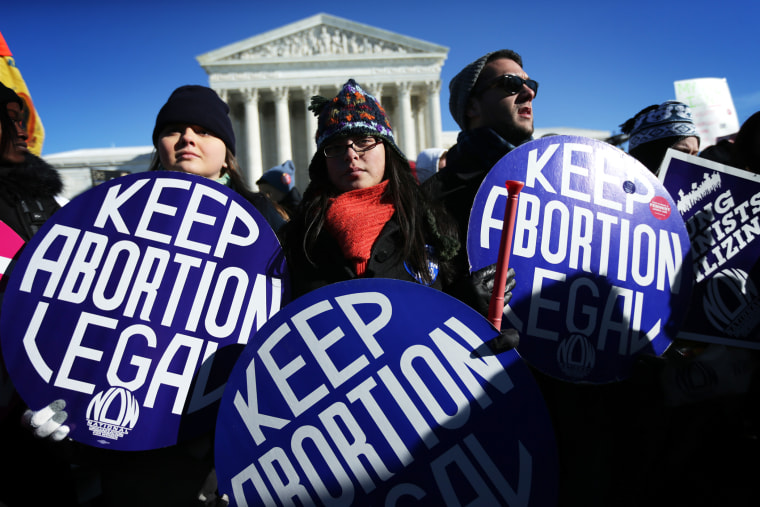Here we are again.
Tomorrow marks another anniversary of Roe v. Wade: Another occasion to tally up the attacks on reproductive health care in legislatures across the U.S., wins and losses in the courts, and ground lost or gained in the battle over women’s rights and health care.
"We are closer than ever to the dark days that preceded the Supreme Court’s historic decision."'
It’s clear who’s losing. It’s the women in the large and growing swaths of the country where sham laws passed under the pretext of protecting women’s health are shutting down clinics that offer safe and legal abortion care, hindering access to contraception and family planning services, and denying women insurance coverage for essential reproductive health care.
We are closer than ever to the dark days that preceded the U.S. Supreme Court’s historic decision 42 years ago, when women of means could travel to get safe care, and women without were left with few or no options.
In Texas—where the Roe battle began—politicians have enacted laws that have shut down more than half of the state’s abortion clinics and devastated access to family planning services. Now millions of women await a court decision that could leave just eight abortion clinics in the entire state.
North Dakota and Mississippi are among nearly a half-dozen states that have but a single abortion provider. Both are under constant legislative attack, and remain open now only by virtue of federal court orders. The next nearest clinics are hundreds of miles away in neighboring states where politicians have passed clinic shutdown laws of their own.
Related: Supreme Court saves Texas abortion access, for now
Women in these parts of the country—many of whom are already struggling to care for their families under brutal economic circumstances—are increasingly forced to confront an impossible choice: risk their jobs, their livelihood, and their tenuous financial stability by traveling great distances and enduring lengthy waiting periods to get safe, legal care—or risk their lives by taking matters into their own hands.
These battles will very soon make their way to the Supreme Court and Congress, and the question before them will be whether we, as a nation, are truly committed not just to protecting the health and safety of women across the U.S., but to empowering women to make and act on the very personal decisions we all face in planning our families, building our careers, determining the course of our future, and participating in our communities and society.
"These battles will very soon make their way to the Supreme Court and Congress."'
Those truly interested in achieving these very worthy goals have plenty of good options to choose from. The Women’s Health Protection Act, reintroduced just this morning in Congress, would protect access to safe, legal abortion care for all women across the U.S. under the framework of regulations and limits recognized in Roe v. Wade—standards that seven in 10 Americans agree should be upheld.
Lawmakers could also consider the many proposed measures that would expand insurance coverage for contraception and other essential reproductive health care, protect the well-being of pregnant women, and strengthen the economic security of vulnerable families.
But for any of these ideas to gain momentum, we have to want a better future for women and their families. We have to demand that our elected leaders advance real measures to restore access to basic women’s health services for the millions who have had it taken away—not political measures that will only worsen the crisis.
It’s the only way we will be able, in the years ahead, to say not here we are again, but look how far we’ve finally come.
Nancy Northup is president and CEO of the Center for Reproductive Rights.
